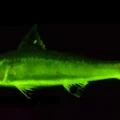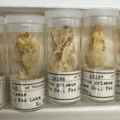News about biofuels sometimes mentions used cooking oil as a feedstock, but if these substances contain animal fat, they can solidify in colder temperatures. This happens because, chemically, the fatty acids of these and many other saturated fats have long carbon chains with single bonds. Enter the euglena. An Osaka Metropolitan University team has found a way to have one species of this microalgae produce wax esters with shorter carbon chains than usual.
Using CRISPR/Cas9 to edit the genome of Euglena gracilis, Dr. Masami Nakazawa and her team at the Graduate School of Agriculture’s Department of Applied Biochemistry produced stable mutants that created wax esters two carbons shorter than the wild-type species.
This improvement in the cold flow of the wax esters makes them more applicable as feedstock for biofuels. Among the factors favorable to using Euglena gracilis as a biofuel source are its ability to grow easily through photosynthesis and anaerobic production of wax esters.
“This achievement is expected to serve as a fundamental technology for replacing some petroleum-based production of wax esters with biological sources,” Dr. Nakazawa affirmed.











No Comments
Leave a comment Cancel